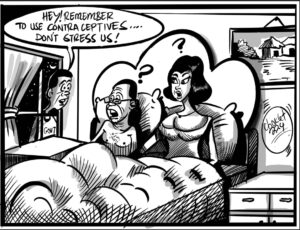GOVERNANCE activist Rueben Lifuka says Justice Minister Mulambo Haimbe’s premature announcement that stakeholders are making submissions towards the constitutional reform process has the potential to undermine a noble programme, fearing that it will be the same old politics of the past.
In a statement, Thursday, Lifuka said the country should not go into another poorly thought through fishing expedition and spend colossal sums of money merely to stroke political egos.
“Minister of Justice – Hon Mulambo Haimbe, is reported to have revealed that the constitutional reform process has commenced and stakeholders have started making their submissions. If indeed this statement attributed to the Minister is true, then it is not only unfortunate but very retrogressive. Zambia has a litany of failed constitutional reform processes, including the latest Bill 10 debacle and it would seem the UPND government has not learnt anything from the failures of the past. There are a number of concerns that this statement by the Minister raises and needs to be addressed even before the process commences,” he said.
“The Government has made no formal public announcement to outline its proposal for completing the constitutional reform process, which has remained unsatisfactory and incomplete for many years under successive governments. It is imperative that there is broad consensus on the process because as we have always advocated – PROCESS PROTECT CONTENTS. One of the major reasons for the failure of past efforts at constitutional making is a flawed process.”
Lifuka said the UPND government should not embark on this endeavor without building the necessary consensus on the process.
“Therefore, the UPND Government should not embark on this endeavor without building the necessary consensus on the process. We need a common understanding of what the intended goal of this process is – are we doing merely housekeeping to cure the lacunae in the current constitution or we are opening up the document for new submissions? Who is going to determine the goals for this process? This is an important point because recent efforts at constitution-making in Zambia have failed as these were mostly driven by narrow partisan interests of the ruling party and their associates,” he said.
“Constitution-making should not be reduced to a function of partisan politics- a document tainted with politics is bound to fail even before the ink dries on the paper it is written on. The constitution touches on all spheres of life and our collective hopes, fears, and aspirations should define the end goal. Expanded Bill of Rights, following the failure of the referendum in 2016, there has been no indication from the PF government then and now the UPND government on the next steps to consider and conclude on this process.”
Lifuka said it might be necessary to open up discussions on the Bill of Rights.
“If indeed a referendum is on the cards, when is this to be expected and how are we going to review the Bill of Rights? Since the Census 2020 starts later this year, should we expect the referendum in 2023 or 2024? Given the passage of time, it may be necessary to open up discussions on the Bill of Rights and this will require well-designed and executed public consultations,” he said.
“Another poorly managed process could lead to the failure of the next referendum. The question which needs to be answered is whether this constitutional reform process that the Minister alleges has started equally involves a consideration of the Bill of Rights. Are stakeholders free to submit on the Bill of Rights? Is the government planning to sensitize the public on the previous draft Bill of Rights.”
Lifuka said the Minister needed to give further guidance on how the roadmap started.
“On the roadmap and Terms of Reference, the Minister of Justice would do well to provide further information on this process which has started. What is the roadmap and who has been given this responsibility to oversee this process? Is this being handled in-house at the Ministry of Justice and is that the best model given the previous experience with Bill 10? What Terms of Reference has the team working on constitution been given?” he asked.
“All these are important questions that need be clear and unequivocal answers Public participation, one of the complaints with the Bill 10 process was the lack of inclusion of all relevant stakeholders in the process of getting submissions for consideration. And even when some stakeholders made submissions to the Ministry of Justice, it was not apparent how the National Dialogue Forum handled these.”
Lifuka said a there was need to establish a Stakeholder Engagement Strategy that would go beyond a few elites in Lusaka making submissions in person or via social media.
“The Ministry of Justice should develop a Stakeholder Engagement Strategy that will go beyond a few elites in Lusaka making submissions in person or via social media. The stakeholder engagement should clearly outline how to capture the views of people in the rural areas, people in peri-urban areas, and even those in the hard-to-reach areas. This is a constitution that should not be exclusive and relevant to those in the urban areas and those who can read and write English but all Zambians even those who want to submit in local languages,” said Lifuka.
“The Ministry of Justice should carefully work out mechanisms for broad stakeholder engagement if this process is to succeed. In the final analysis, the premature announcement by the Minister of Justice has the potential to undermine a noble programme and have it mired in the same old politics of the past. We should not go on another poorly thought-through fishing expedition and spend colossal sums of money merely to stroke political egos. The UPND Government is advised to consult widely on this process and the roadmap so that we can all work towards successfully completing the longstanding national matter.”












